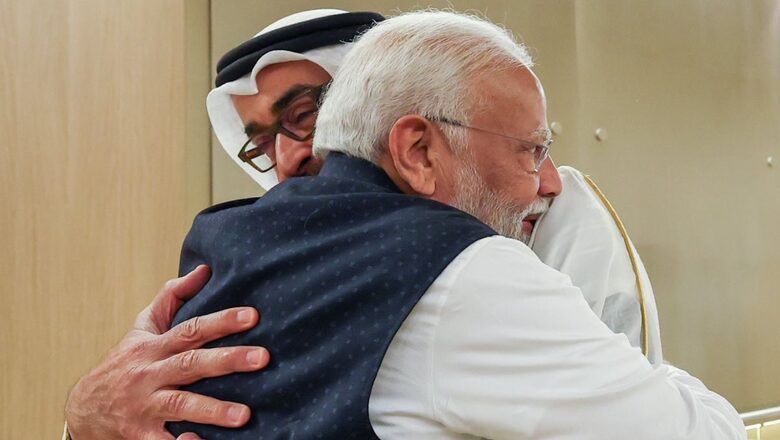
views
A grand Hindu temple inauguration in the UAE. A maiden military exercise with Saudi Arabia. And a sweeping pardon from the Emir of Qatar in what would have otherwise been a devastating execution of eight retired Indian naval officers. All of this has transpired within just a few days. India is at the pinnacle of its diplomatic prowess in Gulf countries, and there’s a common thread binding this trend together — Prime Minister Narendra Modi and his personally managed relationships with the rulers of these prominent Muslim nations.
At a time when the world is divided over the Israel-Gaza war and the monarchs of leading Islamic nations are on the edge to avoid the slightest of bad press, their solidarity with India has reached new heights. Just take a look at the BAPS temple in the United Arab Emirates (UAE). This incredibly grand temple complex has come up right at the heart of the Arab world. The temple has been built at a cost of $84 million, on an area of 27 acres, on land donated by the Emirati President himself. In fact, it was inaugurated by Prime Minister Narendra Modi who thanked UAE’s Sheikh Mohammed Bin Zayed al Nahyan for making it all happen.
In his address to the diaspora in Abu Dhabi, Modi said that when he requested the possibility of a Hindu temple in Abu Dhabi, MBZ instantly agreed. The Emirati leader went on to instruct stakeholders that the temple should be built with glory and grandeur. So, the temple does not just serve its purpose, but it also looks the part, marking a first-of-its-kind in the entire region.
This is indeed a grand gesture from the Emiratis who have remained unfazed by the Western media’s narrative that Indian Muslims are an oppressed minority. Instead, the UAE’s leadership has presented a glowing endorsement of PM Modi himself, at a time when India is headed for a national election.
Under the crown prince, the UAE has taken a progressive turn. While it remains highly traditionalist and authoritarian from the outset, it is still relatively one of the most liberal countries in West Asia. Moreover, the UAE has positioned itself as anti-terrorism. And when it comes to India, the UAE has gone all in. The two nations are strategically aligned and are part of various regional groupings and projects, including the I2U2 and the India-Middle East-Europe Economic Corridor (IMEC).
India can count on the UAE to be a trusted friend, come what may. The UAE does not pass running commentary on Kashmir or side with Pakistan against India. It is not just investing in Jammu and Kashmir, it also seems to recognise POK or Pakistan-Occupied Kashmir as part of India.
Trade between the two countries has reached $84 billion annually and it could reach $100 billion soon. This makes the UAE India’s third largest trade partner. Non-oil trade has crossed $50 billion, and Indian exports are rising. The UAE is also accepting payments for oil in the Indian rupee. It has accepted the UPI-based Rupay card, which is great news for Indians there.
At the end of the day, the UAE recognises the great potential in India. India is not just the fastest-growing large economy in the world, but also an increasingly powerful player in global geopolitics. Moreover, at 3.3 million, Indians form more than one-third of the total population of the UAE. They have helped build this nation, while never once posing a challenge to its security or polity. So if you’re looking for a pair of best friends on the world map, one of them is undoubtedly the duo of India and UAE.
Moving on to Qatar, which is a whole different and challenging arena in comparison to the seamless grounds of the UAE. This is where another incredible breakthrough for PM Modi came from. Last year, Qatar’s courts sentenced eight former Indian navy officials to the gallows on charges of espionage. While the details of this matter were never revealed, it was leaked that these men allegedly passed on top-secret information regarding a Qatari submarine project to Israel.
Now Qatar is infamous for punching above its weight as a geopolitical force. Unlike the UAE, the tiny nation of Qatar has a dark side. It is a little too close for comfort with terror groups. At the same time, it cannot be shunned by the leading powers of the world. So while Hamas leaders enjoy safe haven in Qatar, the Mossad chief can come in and go whenever he wants too. And while it hosts the USA’s largest overseas base, it remained highly influential among the Taliban leadership. Ultimately, talks between the US and Taliban were hosted by Doha, Qatar’s capital. And even now, US Secretary of State Antony Blinken has hinged on Qatar to expedite the release of Israeli hostages held in Gaza. Qatar holds tremendous sway in the region and cannot be written off easily.
The death sentence shook India to its core. Never in its history had it witnessed such a sensitive challenge. And yet, India’s diplomatic charm prevailed. It stayed largely muted on the front end, while deploying diplomatic tactics in the background. India dealt with the matter with utmost sensitivity, and sought to cause no damage to Qatar’s reputation. And soon the death sentence was commuted to a life sentence and the life sentence turned into release.
Moreover, PM Modi stepped in personally and it is said that ultimately it was he who changed the Qatari Emir’s mind. An unfortunate tragedy was ultimately averted. As this relief set in, PM Modi announced his visit to Qatar, along with his UAE trip which was planned much earlier. A favourable LNG deal was also signed with this gas-rich nation. This was an extension of a 25-year deal that was to expire in 2028— a $78 billion LNG deal securing a gas supply from Qatar for 20 years at rates lower than current prices. In total, India is estimated to have saved $6 billion, all while continuing on the path to transition to clean energy.
From the fallout of the Russia-Ukraine war, it is known that Qatar has no dearth of customers. A very thirsty Europe has been standing right at its door for more than a year now. But it signed a deal with India keeping in mind the country’s growing geopolitical relevance and its booming market. For Qatar, not antagonising India makes sense.
A little less talked about last week was Saudi Arabia, which just concluded a military exercise with India called ‘Sada Tanseeq’. This is a reflection of the soaring strategic ties between Riyadh and New Delhi. While not as progressive as the UAE yet, Saudi Arabia’s leadership is on a quest to promote deradicalisation. It also has a similar approach towards India and it is also a member of the IMEC. Trade is growing and so are people-to-people ties.
A few decades ago, no one could have imagined any of these developments to be possible. India just did not have that kind of sway in West Asia. But it does now, after years of focused and nurturing diplomacy, and this has emerged as a major asset for New Delhi impacting both economic and security domains.













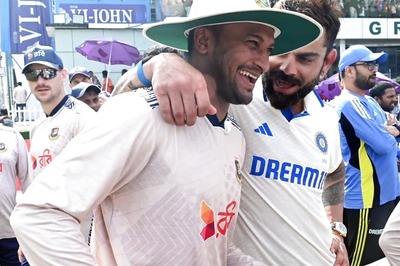

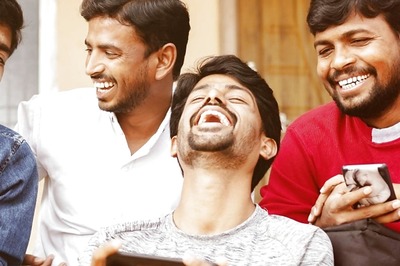
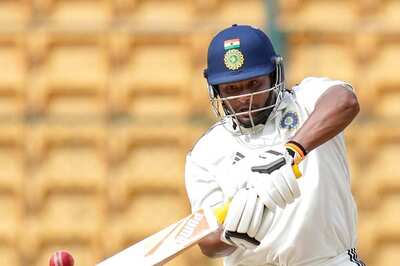

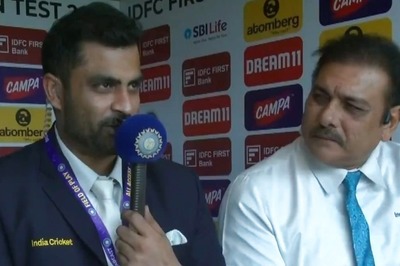
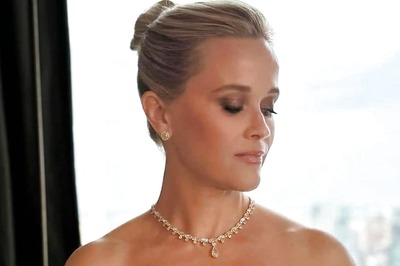
Comments
0 comment